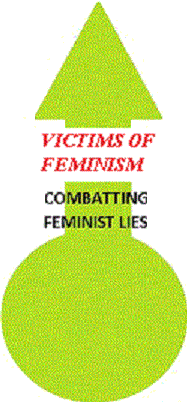Those poppies we're supposed to wear today represent cemeteries —
military cemeteries, in Europe, where Canadian (and US, and UK, and European)
soldiers were buried. They represent men dying; the fraction of those
killed in battle, who are women, is tiny.
Casualties, they were called. I see nothing casual about being killed
in battle. They died fighting for the presumed good, safety, perhaps ambitions
of the governments who sent them there. Canadian soldiers especially,
died "to protect the folks back home."
Some of them were not even volunteers. In the US, in some other countries,
there is "the Draft." Men go to serve in the military whether they want
to or not. Many of those men die if they wind up in battles; being "drafted"
does not make anyone bulletproof.
It's a good guess that they are all done more by men than women. ("Grounds
maintenance" is the one where I might imagine about equal participation
by both sexes...
but my estimate is that even groundskeepers are mostly men, because it
is outdoor work.)
While remembering that men went to war, suffered austerity, and many
of them died, to protect women and children (and perhaps serve the interests
of the Ruling Class of the state that sent them), it is worthwhile to
remember that danger has been men's rather than women's business
for much longer than Canada has existed.
Long ago, women faced danger mainly in the form of childbearing. Today,
the dangers of childbearing are few and small for most women; the medical
arts and sciences have made motherhood safe... especially if a woman has
her first child before age 25. Logging, fishing, building and repairing
roofs, collecting garbage, etc. — remain dangerous — as does war.
If men's productive [and protective] work shortens our lives; and women's
reproductive work does not similarly shorten theirs; then arithmetic plainly
tells us, that if women enjoy equality apart from the dangers involved,
men have it worse over-all [= in sum].
It would be more consistent in today's Canada, to say that men are sent
to war because we are considered inferior to women, than to say it is
noble of us to protect them.
I argued two
years ago, that preferring peace and avoiding war would be very good for
men's health. That is one way to improve our situation — and everyone's.
Furthermore and perhaps better, we can confront overall inequality and
we can "go our own way", often as groups of brothers-by-choice rather
than alone.
The notion that marriage and solitude are a man's only two choices,
is nonsense. I still believe there are many good women, women "worth marrying";
but after decades of Feminist misandry, there are also many women who
are not worth marrying. Solitude suits a small minority of men. Military
fellowship is one alternative; but we are being admonished to remember,
this day, how dangerous war is.
Perhaps it is worth looking ... sometime soon ... at how men lived,
outside marriage but not in solitude, before the World Wars; and then
at how we might live fraternally two generations after the Second World
War ended.
Today, let us remember the sacrifices of comfort, safety, sometimes
life itself, which war demands of men and not of women. Tomorrow and beyond,
let us consider how work generally makes similar if less drastic demands,
and what might be fair compensation for those dangers and discomforts.
|
References cited:
Brown, Grant A., 2013. Ideology
And Dysfunction In Family Law : How Courts Disenfranchise Fathers.
Calgary and Winnipeg: Canadian Constitution Foundation and Frontier Centre
For Public Policy
Nathanson, Paul, and Katherine K. Young,
2006. Legalizing Misandry: From Public Shame to Systemic Discrimination
against Men Montreal: McGill-Queen's University Press.
Pinker, Susan, 2008. The Sexual
Paradox: Extreme Men, Gifted Women and the Real Gender Gap. [no
city listed in flyleaf] Random House of Canada; New York: Simon and Schuster.
Pinker, Stephen, 2002: The Blank Slate:
The Modern Denial of Human Nature. NY: Viking. [p 344: ".. confirming
an expectation from evolutionary psychology, for many traits the bell
curve for men is flatter and wider than the curve for females. That is,
there are proportionately more males at the extremes." cited by his sister
[2008: 273]
|
